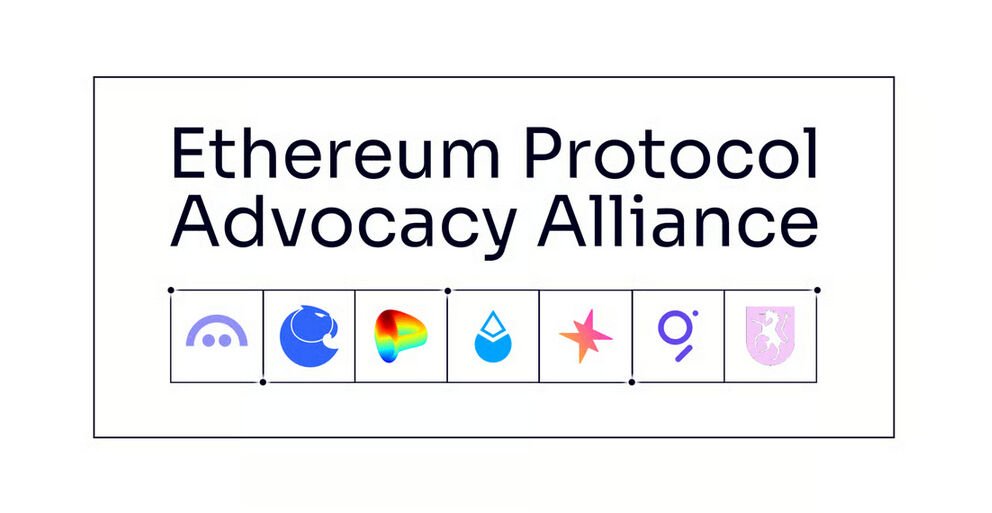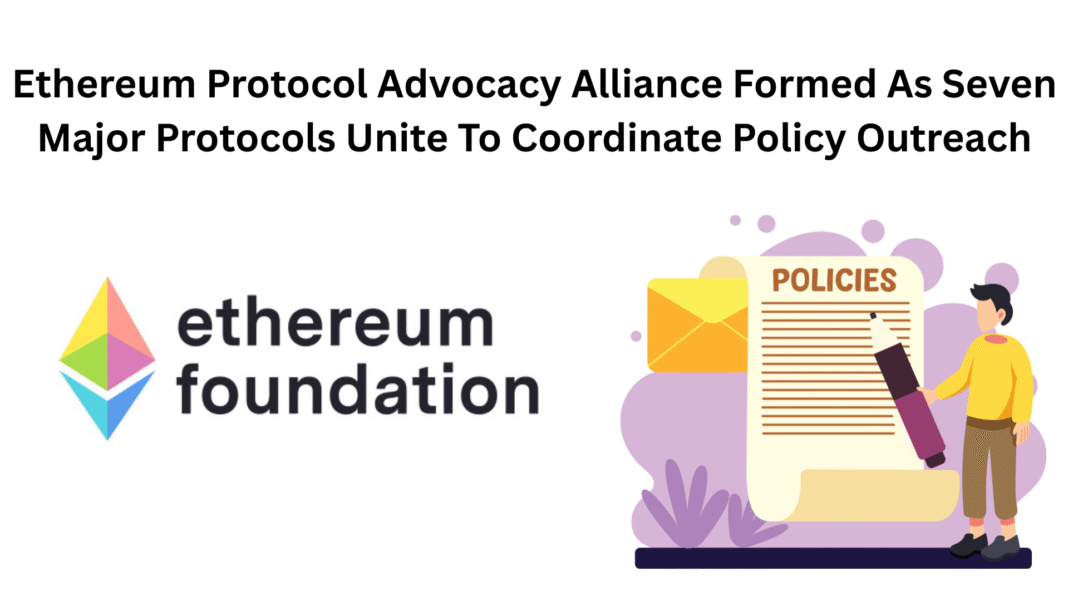The Ethereum Protocol Advocacy Alliance (EPAA) is established by significant Ethereum players to coordinate “policy efforts” and educate legislators about the ecosystem.
With the announcement of the Ethereum Protocol Advocacy Alliance on Tuesday, the EPAA emphasised how crucial it was to form the organisation in order to combat the seeming “outsized influence” that centralised cryptocurrency corporations had in policymaking.

Education on the ecosystem
“This imbalance has often left the principles and technologies underpinning onchain infrastructure misunderstood or overlooked,” said the EPAA.
Among the prominent players in decentralised finance that comprise the alliance are Aave Labs, Aragon, Curve, Lido Labs Foundation, Spark Foundation, The Graph Foundation, and the Uniswap Foundation.
“Together, we secure over $100 billion in assets through open, non-custodial protocols that operate without intermediaries. Drawing on our pragmatic and technical experience, we will advocate for onchain solutions to regulatory challenges,” the team said.
Also Read: Ethereum Foundation Offers Up To $2M In Contest To Hunt Bugs Ahead Of Fusaka Upgrade
There are already significant advocacy initiatives in place. The Alliance’s purpose is to support these initiatives with the combined voice of builders. These days, policymakers have to deal with more complicated issues regarding onchain systems.
Protocol teams have years of real-world experience creating infrastructure that helps people and organisations while directly addressing vulnerabilities in code.
By collaborating with already-existing organisations, they can guarantee that regulation is efficient, technically sound, and consistent with the values that maintain the security, impartiality, and transparency of Ethereum protocols.
The lobbying efforts
During the last US election cycle, venture capital firm a16z, cryptocurrency exchange Coinbase, and XRP-ledger developers Ripple formed Fairshake, the largest Political Action Committee supporting cryptocurrencies.
According to OpenSecrets records, the PAC raised $260 million to fund its lobbying operations, spending a total of $195.8 million.
The EPAA should have enough resources to support policy initiatives and attempt to influence policy, given the prominence of its members.
The EPAA has proposed four strategies for interacting with policymakers, as finding areas of shared technical interest, coordinating strategic engagement to increase the reach of communications, creating pragmatic tools to explain technical information, and offering technical knowledge.
Recently, the Ethereum ecosystem has witnessed several new initiatives aimed at enhancing coordination, communication, branding, development, and onboarding.
In contrast to its prior open application strategy, the Ethereum Foundation changed its funding program earlier this month, choosing a more selective approach.
With this new initiative, the community is sitting in rapt attention to see how things turn out and how this will benefit the ecosystem.


